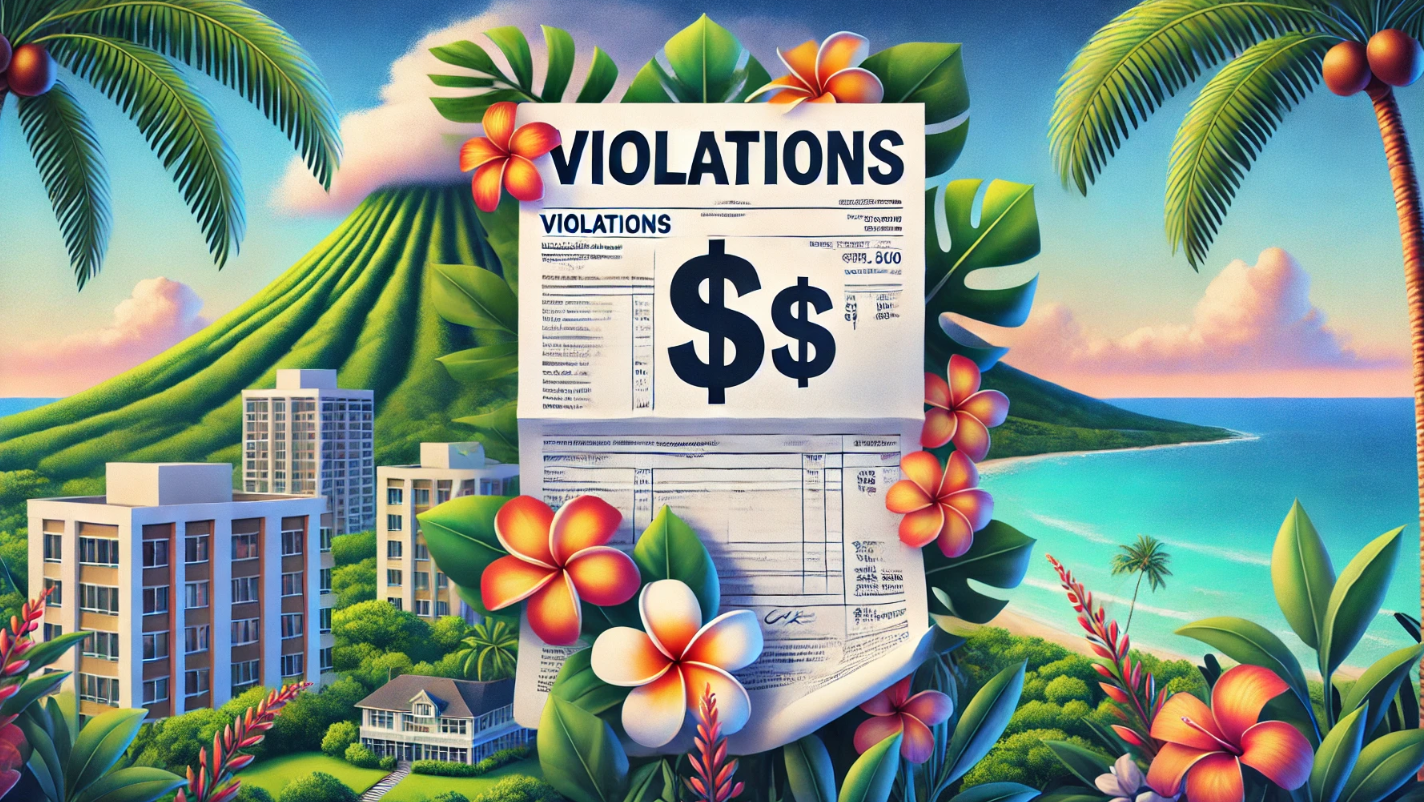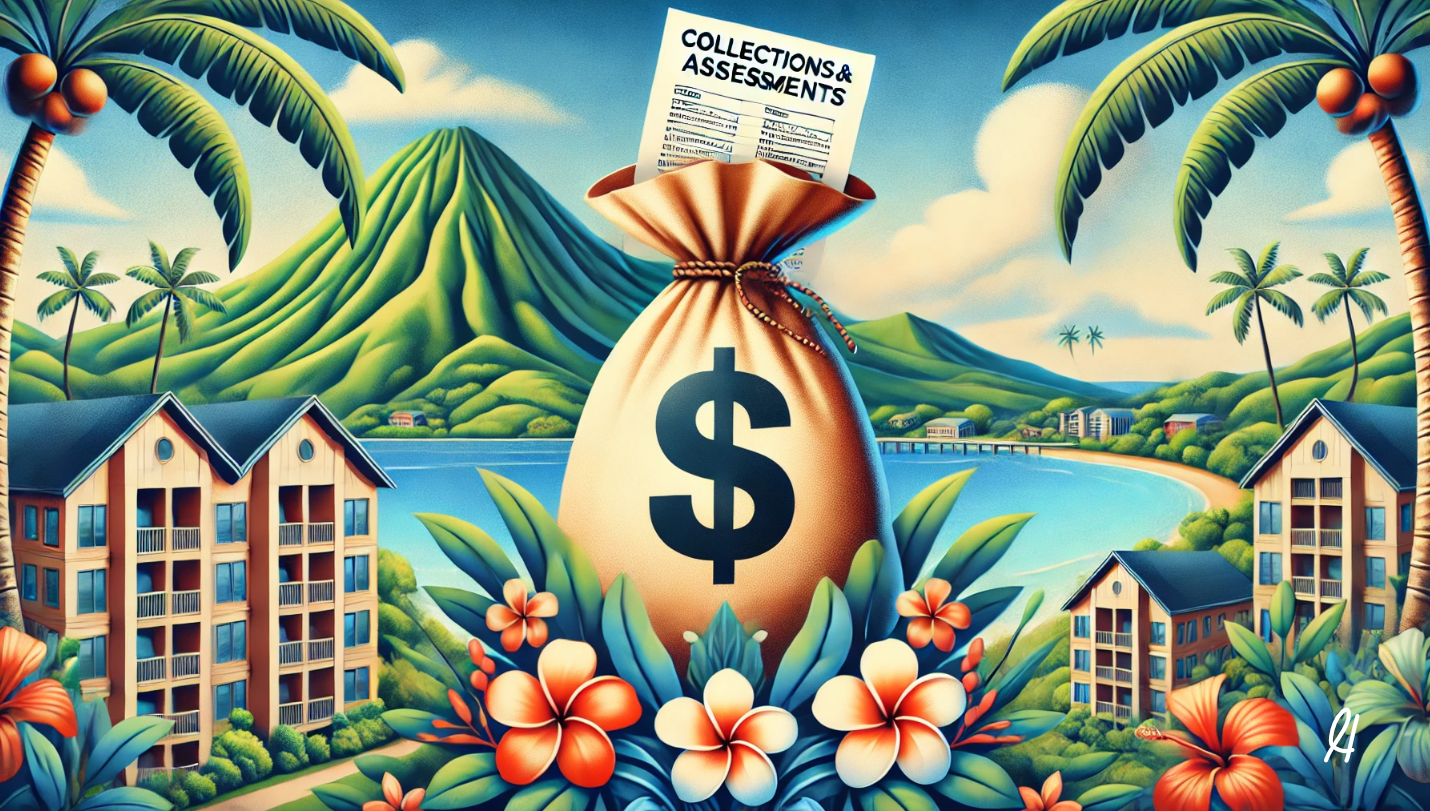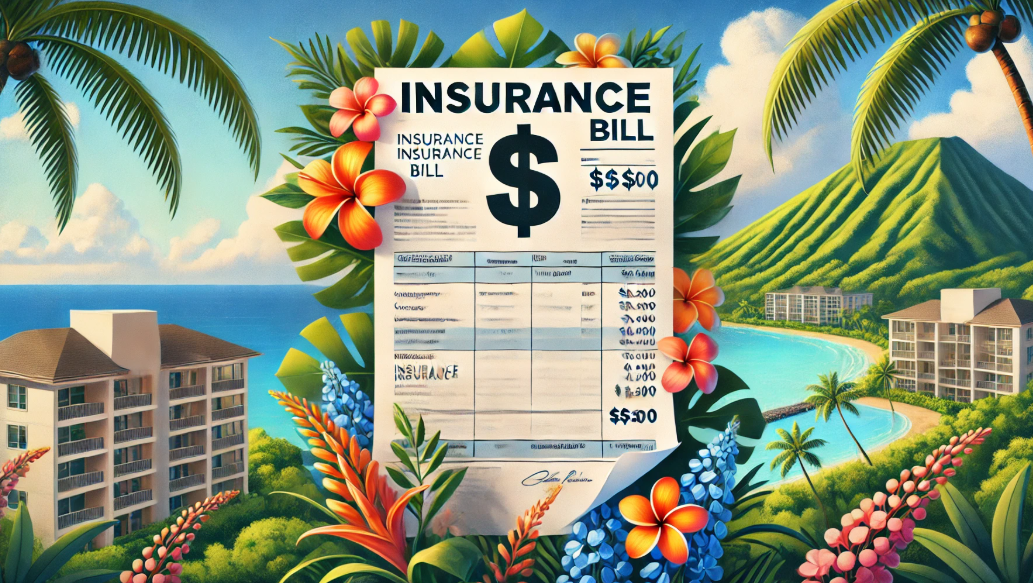Hawaii’s 2025 Legislative Session brought forward over 50 “condo related” bills. One of the remaining bills deals with insurance. On March 31, 2025 Governor Josh Green issued his fifth proclamation. the actual directives start on page 3:
 Key Updates in SB1044 SD2 HD1 (Compared to HD1 version):
Key Updates in SB1044 SD2 HD1 (Compared to HD1 version):
- Scope Expanded:
SB1044 now explicitly includes a five-year insurance option for high-rise condos, with the Hawaii Property Insurance Association (HPIA) providing property insurance under strict underwriting rules. The expansion to cover condominiums more directly aligns with our original concerns, particularly around reliance on the private market. - Loan Provision:
The bill includes a State loan to the HPIA for startup costs, solvency, and reinsurance—adding to our concern about a public bailout for private risk management. - Temporary Recording Fee Replaces Mortgage Fee:
Replaces the “special mortgage recording fee” with a temporary recording fee on land documents, spreading cost burden more broadly. This may appear more equitable, but still indirectly charges homeowners without guarantees of policy reform or accountability. - State-Supported Insurance is Framed as Temporary:
The bill emphasizes this is not a long-term solution, but our position calls for permanent, State-supported self-insurance options—something the bill still does not fully address. - No Language Added for Self-Insurance or Foreign Insurer Access:
Our call for allowing international carriers or a self-insurance model remains unaddressed in the latest version.
TESTIMONY IN OPPOSITION TO SB 1044 SC2 HD1
Position: OPPOSE UNLESS AMENDED
SB 1044, SD2, HD1 RELATING TO THE STABILIZATION OF PROPERTY INSURANCE:
SB1044 SD2 HD1 is a bill that aims to stabilize Hawaii’s fragile property insurance market. While the intention behind this legislation is commendable, it is not worth convoluting the condo law landscape due to its incomplete protection of property owners and its potential to entrench systemic vulnerabilities rather than resolve them.
The financial harm caused by an insurance market that is monopolized, opaque, and unaccountable continues to plague Hawaii’s homeowners as they are drained of their resources while insurers profit from crisis after crisis.
 Core Concerns with SB1044 SD2 HD1:
Core Concerns with SB1044 SD2 HD1:
- No Path for Self-Insurance or Risk-Sharing Alternatives:
The bill still lacks any mechanism for State-supported self-insurance pools or public insurance models. It reinforces dependence on private brokers and reinsurers without allowing larger associations to create sustainable alternatives that could meet Fannie Mae or Freddie Mac requirements. - Public Funds Risk Being Used to Bail Out a Broken System:
By providing loans and expanding the powers of HPIA and the Hurricane Relief Fund—without strong oversight, caps, or owner protections—we are inviting more taxpayer liability without systemic reform. - Opaque Risk & Premium Structures:
There is no mandate for transparency regarding broker commissions, insurer profits, or the percentage of premiums going toward actual claims vs. corporate margins. The lack of visibility prevents owners from advocating for reform or alternatives. - Indirect Homeowner Charges Continue:
The shift from a mortgage-based fee to a “temporary recording fee” does not eliminate the burden on property owners. Without safeguards, this too becomes another hidden cost to working-class families and first-time buyers.
 Supporting Literature & Evidence:
Supporting Literature & Evidence:
- “The Risk Pool: How the Insurance Industry Works” by David Moss (Harvard Business School) explains how insurance markets function best when risk is widely distributed and transparently priced. Hawaii’s current condo insurance market fails this test, with concentrated provider control and opaque pricing mechanisms that violate basic risk-pooling principles. Moss warns that when insurers are allowed to cherry-pick clients or regions, the system becomes unstable and unaffordable for those left behind—exactly what Hawaii condo owners are experiencing.
- “The Economics of Insurance Markets” by Karl Borch (Routledge) outlines how monopolistic or oligopolistic insurance markets—like Hawaii’s—lead to price distortions, reduced consumer choice, and systemic inefficiencies. Borch advocates for public alternatives or cooperative models when private markets fail to serve the public good, as is the case here.
- RAND Corporation’s 2023 report on Veterans Affairs Community Care highlights the dangers of outsourcing essential services to private markets without adequate oversight. The report found that while private-sector care was intended to improve access, it often led to higher costs, inconsistent quality, and poor coordination—paralleling the risks of relying solely on private insurers for condo coverage without public accountability.
- Consumer Federation of America (CFA) Reports on Homeowners Insurance have consistently warned that insurers are increasingly using non-transparent algorithms and catastrophe modeling to justify rate hikes, often disconnected from actual claims data or risk exposure. CFA recommends stronger state oversight, public rate justification, and alternative insurance models—none of which are addressed in SB1044.
- “Disaster Insurance Reimagined” by Howard Kunreuther and Erwann Michel-Kerjan (Wharton Risk Center) argues for multi-layered insurance systems that combine public and private resources. Their research shows that state-supported insurance pools and catastrophe bonds can reduce volatility and improve affordability—exactly the kind of reform SB1044 should include but currently lacks.
 Suggested Amendments to SB1044:
Suggested Amendments to SB1044:
- Create a State-managed master insurance policy as a permanent alternative to private markets.
- Allow foreign insurers to compete to increase access and affordability.
- Mandate transparency on premium-to-payout ratios and broker compensation.
- Include a provision for phased hurricane coverage based on actual risk—not just lender pressure.
- Establish limits and opt-outs to protect owners from premium surcharges and ensure fair cost distribution.
- Prevent future forced special assessments triggered by unaffordable coverage or sudden deductible changes.
 Final Thought:
Final Thought:
The intent of SB1044 is noble—but the execution, without reform, could exacerbate the financial vulnerability of Hawaii’s homeowners. We must act now to empower associations with self-governance tools, protect property rights, and limit unchecked industry influence.
Mahalo for standing with condo owners instead of the insurance complex.
Let’s encourage our lawmakers to focus on solutions that bring real change, moving beyond the fragmented efforts that currently exist. Together, we can build a more resilient and financially secure community.ve complexity and increase the effectiveness of the measures proposed to stabilize the insurance market for condominiums.









